第3章 DE BERANGER.(3)
It was thus that he spoke of the object of my visit, of his earnest desire to see me, and of the solace he expected me to afford him. He entered, at some length, into what he conceived to be the nature of his malady. It was, he said, a constitutional and a family evil, and one for which he despaired to find a remedy--a mere nervous affection, he immediately added, which would undoubtedly soon pass off. It displayed itself in a host of unnatural sensations. Some of these, as he detailed them, interested and bewildered me; although, perhaps, the terms, and the general manner of the narration had their weight. He suffered much from a morbid acuteness of the senses; the most insipid food was alone endurable; he could wear only garments of certain texture; the odours of all flowers were oppressive; his eyes were tortured by even a faint light; and there were but peculiar sounds, and these from stringed instruments, which did not inspire him with horror.
To an anomalous species of terror I found him a bounden slave. "I shall perish," said he, "I must perish in this deplorable folly. Thus, thus, and not otherwise, shall I be lost. I dread the events of the future, not in themselves, but in their results. I shudder at the thought of any, even the most trivial, incident, which may operate upon this intolerable agitation of soul. I have, indeed, no abhorrence of danger, except in its absolute effect--in terror. In this unnerved--in this pitiable condition--I feel that the period will sooner or later arrive when I must abandon life and reason together, in some struggle with the grim phantasm, FEAR."
I learned, moreover, at intervals, and through broken and equivocal hints, another singular feature of his mental condition. He was enchained by certain superstitious impressions in regard to the dwelling which he tenanted, and whence, for many years, he had never ventured forth--in regard to an influence whose supposititious force was conveyed in terms too shadowy here to be re-stated--an influence which some peculiarities in the mere form and substance of his family mansion, had, by dint of long sufferance, he said, obtained over his spirit--an effect which the physique of the grey walls and turrets, and of the dim tarn into which they all looked down, had, at length, brought about upon the morale of his existence.
He admitted, however, although with hesitation, that much of the peculiar gloom which thus afflicted him could be traced to a more natural and far more palpable origin--to the severe and long-continued illness--indeed to the evidently approaching dis-solution--of a tenderly beloved sister--his sole companion for long years--his last and only relative on earth. "Her decease," he said, with a bitterness which I can never forget, "would leave him (him the hopeless and the frail) the last of the ancient race of the Ushers." While he spoke, the lady Madeline (for so was she called) passed slowly through a remote portion of the apartment, and, without having noticed my presence, disappeared.
I regarded her with an utter astonishment not unmingled with dread--and yet I found it impossible to account for such feelings. A sensation of stupor oppressed me, as my eyes followed her retreating steps. When a door, at length, closed upon her, my glance sought instinctively and eagerly the countenance of the brother--but he had buried his face in his hands, and I could only perceive that a far more than ordinary wanness had overspread the emaciated fingers through which trickled many passionate tears.
The disease of the lady Madeline had long baffled the skill of her physicians. A settled apathy, a gradual wasting away of the person, and frequent although transient affections of a partially cataleptical character, were the unusual diagnosis.